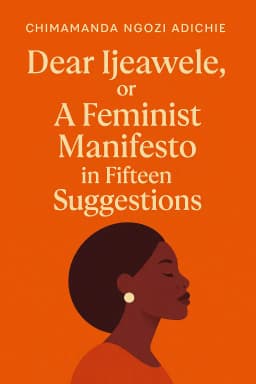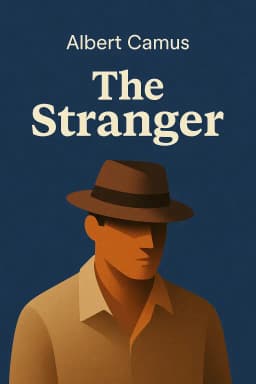
Beyond the Brain Scan
Golden Hook & Introduction
SECTION
Michael: Neuroscience is getting closer to explaining everything about us: our thoughts, our choices, our emotions. But what if the most important parts of being human—like love, honor, or the meaning in a piece of music—can never be explained by science, no matter how advanced it gets? Kevin: Whoa, that's a big claim to start with. That feels like throwing down a gauntlet against the entire modern world. You're basically saying my brain scan can't tell you why I cried during that movie last night. Michael: It can tell you what happened in your brain—which neurons fired, which chemicals were released. But it can't tell you why it mattered. And that distinction is at the heart of a really profound and, I think, necessary book we're talking about today: The Soul of the World by Sir Roger Scruton. Kevin: Right, and Scruton wasn't just some dusty academic. He was a knighted public intellectual, a major conservative thinker who was famously involved in setting up underground universities in Soviet-controlled Europe. So he had a real-world stake in defending human dignity against dehumanizing systems. Michael: Exactly. And his core weapon in that fight is a powerful idea he calls 'cognitive dualism,' which is really about the two different worlds we all inhabit simultaneously.
The Two Worlds We Live In: Science vs. The Soul
SECTION
Kevin: Okay, 'cognitive dualism' sounds intimidatingly philosophical. Break that down for me. What are these two worlds? Michael: Scruton says we have two fundamental ways of engaging with reality. The first is the world of explanation. This is the world of science. It’s made of objects, forces, and causes. It’s the world a physicist describes, or a neuroscientist. It's incredibly powerful for telling us how things work. Kevin: That’s the world we're all familiar with. The one that gives us medicine and smartphones. What’s the other one? Michael: The other is the world of understanding. This world isn't made of objects; it's made of subjects. It’s the world of persons, reasons, and meanings. It’s where we don't ask for a cause, but for a reason. We don't explain a person's action, we try to understand it. This is the world of 'I' and 'You'. Kevin: I think I see the difference, but it still feels a bit abstract. Can you give me a concrete example where these two worlds collide? Michael: Absolutely. Scruton brings up a fantastic historical case: the Spartans at Thermopylae. You have 300 soldiers choosing to fight to the death against an overwhelming army. Now, how would the world of explanation handle this? Kevin: Well, an evolutionary psychologist might say it's a form of altruism that promotes the survival of their group's genes. A 'dominant reproductive strategy,' as Scruton puts it. It’s a cold, calculated, biological explanation. Michael: Precisely. It explains it as a mechanism. But does that explanation feel satisfying? Does it capture the reality of what happened? Scruton argues it completely misses the point. The world of understanding uses a different language entirely. It talks about honor, duty, courage, and sacrifice for one's home. These concepts don't exist in physics or biology. They exist in the shared world of persons. The scientific explanation is true, in a sense, but it’s trivial. The human understanding is what’s profound. Kevin: Okay, but isn't that just a matter of perspective? A skeptic would say that 'honor' is just a fancy label we put on complex brain chemistry. Isn't Scruton just creating a special, protected category for things he doesn't want science to touch? It sounds a bit like he's trying to have his cake and eat it too. Michael: That’s the key distinction he makes. He's not arguing for two different substances, like a physical brain and a ghostly soul. That's old-school Cartesian dualism. He's arguing for two different ways of knowing, two incommensurable standpoints. Think of it like this: listening to music. He uses the example of Beethoven’s Third Piano Concerto. Kevin: A classic. Michael: An acoustician can analyze it perfectly. They can give you a complete scientific explanation of the sound waves, the frequencies, the harmonic series, the physical properties of the instruments. Their description would be 100% accurate. Kevin: But it would tell you absolutely nothing about the music itself. Michael: Exactly. As a listener, you're not hearing frequencies; you're understanding a melody. You hear movement, tension, release, a question and an answer. You're in a completely different world, the world of meaning. The acoustician and the listener are both experiencing the same event, but their realities are totally different and cannot be reduced to one another. You can't find the 'melody' in the sound waves, and you can't find the 'frequencies' in the feeling of the music. They are two different, equally real, ways of knowing the world. Kevin: That’s a great analogy. So the scientific explanation doesn't cancel out the personal understanding; they just exist on different planes. I can see how that applies to music or art. But Scruton takes this much further, into the realm of the 'sacred.' That's where it starts to sound a lot like religion to me. How does he get from a melody to God?
Finding the Sacred in a Secular World
SECTION
Michael: He gets there by arguing that the 'sacred' is what happens when our 'understanding' mode goes into overdrive. It's the experience of encountering something that feels, in his words, 'set apart and forbidden,' something that is brimming with a meaning that transcends its physical properties. And he argues we find this everywhere, not just in a church. Kevin: Where, for instance? Michael: The most fundamental place is the human face. When you look at another person, you don't see a collection of flesh, bone, and nerve endings. That's the scientific explanation. You see a person. A subject. A consciousness looking back at you. You are in an 'I-You' relationship. That moment of genuine connection, of seeing the soul in the eyes of another, is a basic form of the sacred. It's an encounter that can't be reduced to its biological components. Kevin: I can get on board with that. The feeling of truly connecting with someone is powerful. It does feel like something more than just biology. Michael: And Scruton says this impulse—to find the 'You' in the 'It'—is what drives us to create a meaningful world. We build homes, not just shelters. We create art, not just objects. We are trying to find a 'face' on the world, to make it a place where we can feel at home. This brings us back to music. Kevin: Right, the ultimate abstract art form. Michael: He uses the example of Rachmaninov's symphonic poem, 'The Isle of the Dead,' which was inspired by a famous painting of a boatman rowing a shrouded figure to a gloomy island. Now, you could say the music is about the painting, that it's just imitating the feeling of dread and finality. Kevin: That's how most people would interpret it. Michael: But Scruton says that's too simple. When you truly listen, the music isn't just depicting a scene. It becomes a journey of pure intention. He describes it as a "movement of nothing in a space that is nowhere." You are following a line of pure feeling, a subjectivity that has no subject and no object. It’s pure 'aboutness.' And in that moment, you are experiencing something sacred—a glimpse into a world of meaning that is completely detached from the physical world of things. Kevin: That's a beautiful description. But I have to bring up a common critique of the book. Some reviewers, while admiring his writing, have called it a bit of a 'hodgepodge.' Is he just pulling these elegant examples from art, philosophy, and religion to build an emotional case for a feeling he wants to be true? Is there a rigorous system here, or is it just a collection of beautiful insights? Michael: I think that's a fair challenge, but I see it differently. I don't see it as a hodgepodge, but as a consistent application of his central idea—cognitive dualism—across every major field of human meaning-making. He's showing that the same fundamental tension between explanation and understanding exists in law, in politics, in architecture, in love, and in music. He’s demonstrating the universal pattern. It's not a random collection; it's a unified worldview.
Synthesis & Takeaways
SECTION
Kevin: So, after all this, what's the big takeaway? Are we supposed to abandon science and just feel our way through life? Michael: Absolutely not. Scruton's point is that we need both. We are amphibious creatures, living in two worlds at once. Science gives us incredible power over the world of objects. It allows us to manipulate, predict, and control. But that world is ultimately sterile. It's the world of understanding—the world of persons, of meaning, of the sacred—that gives us a home in the world. Kevin: And losing that would be... losing the soul of the world. Michael: Exactly. To reduce everything to scientific explanation is to make ourselves strangers in the universe. Scruton uses a powerful quote to describe this modern predicament. He says the person who only sees the scientific world is like a passenger on a vast oceangoing liner, pacing the deck and "persuading himself that he moves it with his feet." We think our little scientific explanations are controlling the whole ship, but we're missing the vast, deep ocean of meaning we're actually traveling on. Kevin: Wow. That's a humbling image. It puts our own sense of importance in perspective. Michael: It does. And the real question Scruton leaves us with is: In our own lives, where do we see the world as just an object to be used, and where do we still encounter it as a subject to be revered? Kevin: That's a heavy one to end on. We'd love to hear what you all think. Where do you find that sense of the sacred in your life? Is it in nature, in art, in a relationship? Let us know. We're always curious to hear your stories. Michael: This is Aibrary, signing off.









